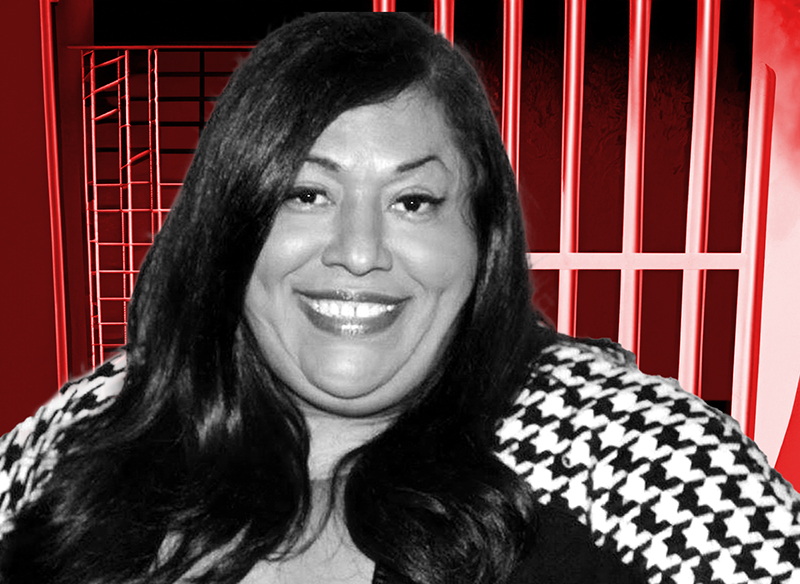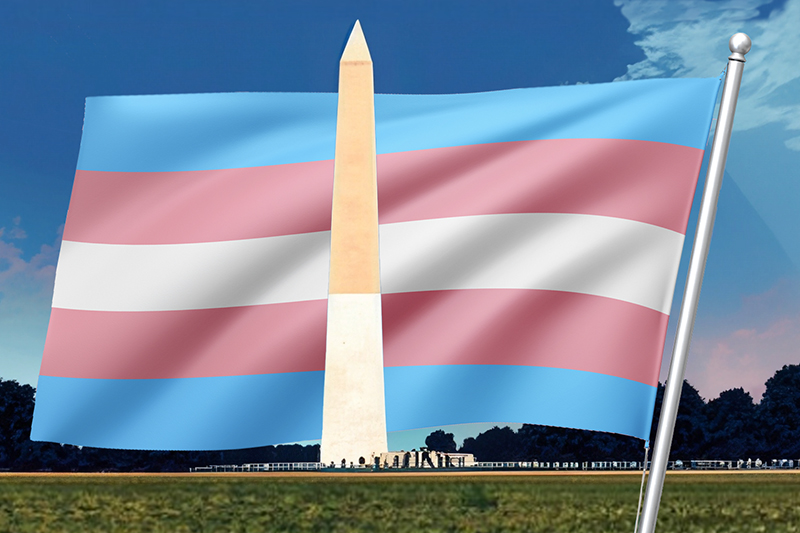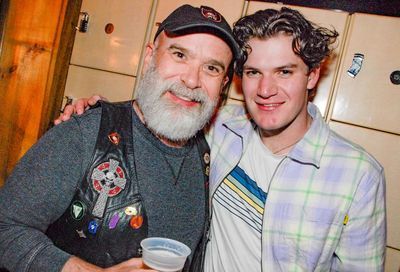CAP Releases LGBT Detainee Report
Immigration experts share insights on particular challenges for undocumented LGBT immigrants
Four days before Thanksgiving, Nov. 25, an audience at the downtown D.C. headquarters of the Center for American Progress (CAP) listened to a story that would likely make anyone thankful not to be a detained immigrant.
”When the police arrived to settle the dispute, they arrested Krypcia and placed her in detention, because they learned that she had fallen out of legal-immigrant status,” Jessica Jeanty told the midday crowd of about 50 people. Jeanty, policy counsel at the National Center for Transgender Equality (NCTE), was relating the story of a transgender woman who fled her native El Salvador in hope of finding a safer environment in the U.S. to express her gender identity, who’d simply been overcharged by a cab driver. Though Krypcia had been in the U.S. for nearly a decade, that minor dispute over cab fare turned into nearly eight months of suffering.
”She spent this time in solitary confinement, because detention authorities refused to house her with other women, and they knew she would not be safe in the male population,” Jeanty continued. ”The long periods of isolation Krypcia spent in solitary confinement led her to be so distressed and emotionally distraught that she eventually resigned to signing a voluntary order for her own deportation. After months of isolation, she would’ve rather risked her life by returning to El Salvador and facing violence, than to waste away indefinitely in U.S. immigration detention.”
While Krypcia, who also received help from D.C.’s Casa Ruby multicultural LGBT community center, was eligible to apply for asylum as a transgender immigrant from El Slavador, Jeanty pointed out a one-year filing deadline on such a request.
”Because she never heard of the deadline, she never filed for asylum within the one-year period,” Jeanty said. ”She missed it and that was not available for her.”
Krypcia may also be giving thanks this Thanksgiving with a thought to the immigration judge who refused to send her back to El Salvador, granting a status short of permanent residency, but that nonetheless returned Krypcia’s U.S.-based freedom to her.
”Her story really illustrates how our current system locks up too many people, for too long, in harsh conditions that can really be very severe for transgender people, and for LGBT people overall,” Jeanty concluded. ”It’s a really good example of how the immigration system and the asylum provisions can have a very disproportionate effect on LGBT immigrants.”
The occasion for Jeanty sharing Krypcia’s story was the Monday release of ”Dignity Denied: LGBT Immigrants in U.S. Immigration Detention,” a report penned by Sharita Gruberg, policy analyst for the LGBT Immigration Project at CAP, a progressive think tank. And after Jeanty shared that story, she turned the program over to Gruberg, who introduced three panelists to discuss the topic: Christine Fialho, co-founder and executive director of Community Initiatives for Visiting Immigrants in Confinement (CIVIC); Royce Murray, policy director at the National Immigrant Justice Center; and Olga Tomchin, Soros fellow at the Transgender Law Center.
”While the Department of Homeland Security, or DHS, does not keep data on the sexual orientation or gender identity of people in its custody, reports of treatment of LGBT detainees obtained through Freedom of Information … requests and through complaints filed by immigrant rights groups reveal that much like the general prison population – where LGBT inmates are 15 times more likely to be sexually assaulted than the general population – LGBT immigrants in immigration detention facilities face an increased risk of abuse in detention,” reads a portion of the introduction to Gruberg’s report. ”The U.N. Special Rapporteur on torture and other cruel, inhuman or degrading treatment or punishment went as far as finding the treatment of LGBT immigrants in the U.S. detention facilities in violation of the Convention Against Torture after it received information on gay and transgender individuals who had been subjected to solitary confinement, torture, and ill-treatment – including sexual assault – while detained in U.S. immigration facilities.”
The report comes as the immigration-reform debate again heats up on Capitol Hill, and as many activists hope recent marriage-equality advances will allow focus to turn to other LGBT-related issues.
A number, courtesy of the Williams Institute at the School of Law at the University of Southern California, Los Angeles, was also an important part of the conversation: 267, 000 – at least – representing the number of LGBT undocumented immigrants in the U.S.
Panelists discussed an array of disproportionate challenges facing this population, from problems with police and immigration overlap, as illustrated by Krypcia’s story, to how homophobia and transphobia have worked against LGBT immigrants accessing services.
Fialho shared a story of how the system has also worked against those attempting to advocate on behalf of LGBT detainees.
”One particular woman at the Santa Ana (Calif.) City Jail who had been denied hormone therapy asked us to speak with ICE (U.S. Immigration and Customs Enforcement) on her behalf to get her hormone therapy,” Fialho shared. ”Unfortunately, attempts to do that failed. … So, one of the things I did was write a blog on the Huffington Post, not mentioning this woman by name, but just mentioning this one instance of this denial of hormone therapy, as well as some of the other problems we were seeing at this facility. And within 48 hours of posting this blog on the Huffington Post, ICE responded, not by trying to fix the problem but by shutting down our visitation program – not only at this particular facility, but at the other two facilities in Southern California where we were operating. ICE basically blacklisted our volunteers at one of the facilities … and prevented me as an attorney from doing a legal visit to these facilities as well. The problem that we faced was trying to get back into the facilities.
”However, what was great about this was that even though ICE responded by shutting down our visitation program, they did get the hormone therapy to this woman within a week.”
Tomchin, who has also represented transgender clients, stressed how vulnerable this population is, particularly transgender women of color, offering that one such client was arrested simply for jaywalking.
Among a ”wish list” of items for improving the situation for LGBT immigrants in U.S. detention were suggestions for alternatives to detention, such as community support programs; a hope for eliminating the one-year deadline for filing a request for asylum; and a prohibition on police making immigration arrests so that LGBT immigrants not fear arrest when seeking police assistance.
Tomchin, however, likely put the strongest point on the Monday discussion.
”I very much take the position that ICE simply cannot house trans people safely, within a prison context,” she said bluntly. ”This is an LGBT issue. In terms of governmental homophobia and transphobia and actual suffering caused by the U.S. government because of people’s gender identity and sexual orientation, this is about as bad as it gets.”
Support Metro Weekly’s Journalism
These are challenging times for news organizations. And yet it’s crucial we stay active and provide vital resources and information to both our local readers and the world. So won’t you please take a moment and consider supporting Metro Weekly with a membership? For as little as $5 a month, you can help ensure Metro Weekly magazine and MetroWeekly.com remain free, viable resources as we provide the best, most diverse, culturally-resonant LGBTQ coverage in both the D.C. region and around the world. Memberships come with exclusive perks and discounts, your own personal digital delivery of each week’s magazine (and an archive), access to our Member's Lounge when it launches this fall, and exclusive members-only items like Metro Weekly Membership Mugs and Tote Bags! Check out all our membership levels here and please join us today!






















